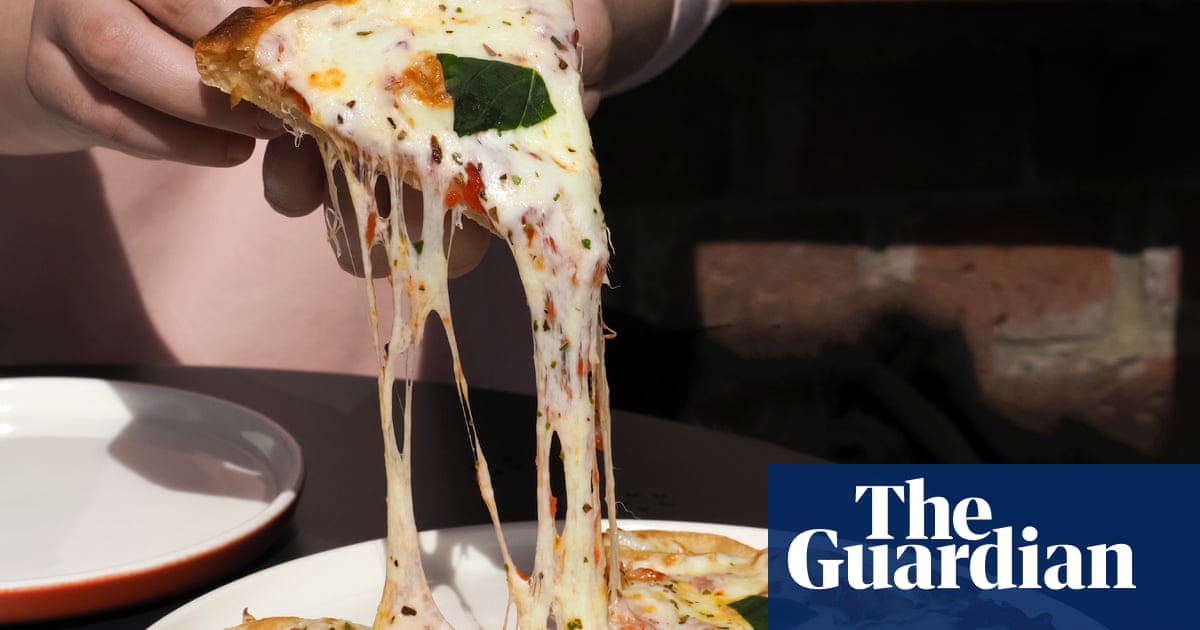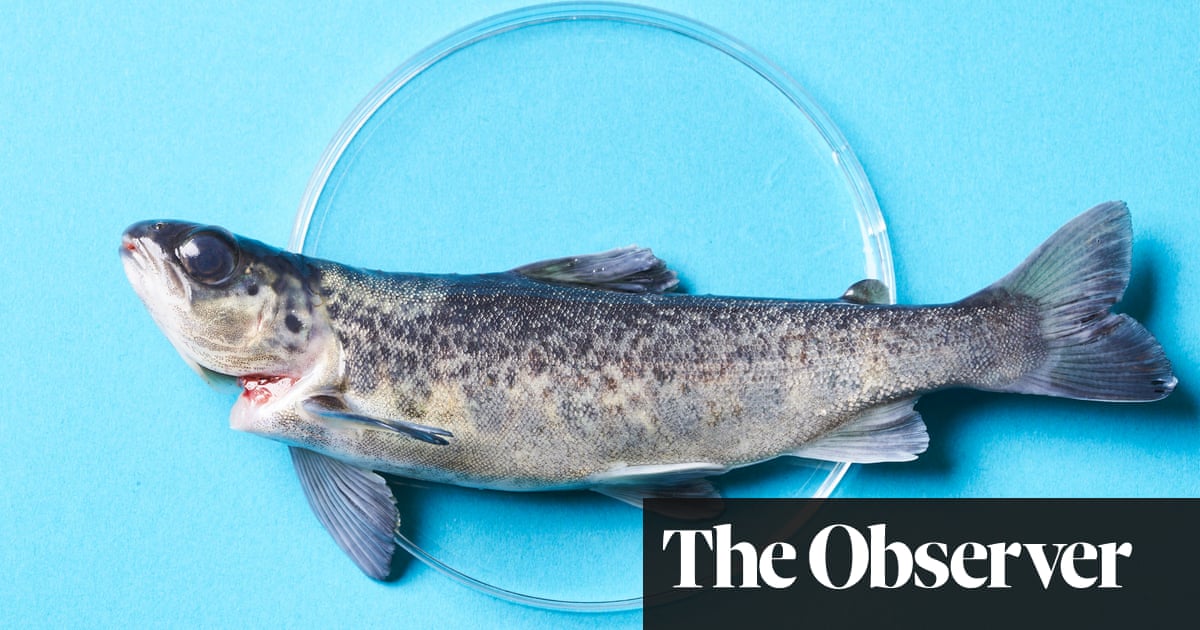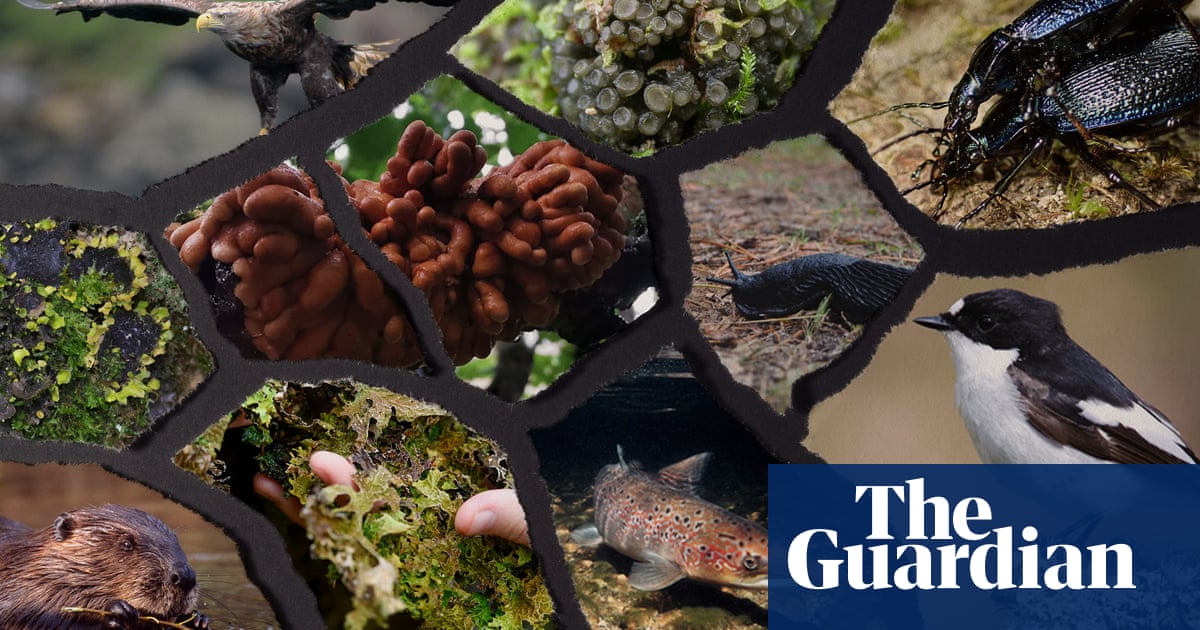Stretchy dairy cheese could now be made without any cows, after the development of yeast strains that produce the crucial milk proteins.
The key to the development, by Israeli company DairyX, is producing casein proteins that are able to self-assemble into the tiny balls that give regular cheese and yoghurt their stretchiness and creaminess. Existing plant-based cheeses often fail to deliver the textures that dairy lovers prize, and the company believes it is the first to report this breakthrough.
Cattle have a major impact on the climate and natural world, owing to the methane gas they burp and the pollution and destruction of nature associated with the global industry. The development of lower-impact alternatives to regular dairy and meat has accelerated in recent years, with the production of plant-based foods and meat grown in vessels.
DairyX’s approach is a third route – precision fermentation. It is now scaling up its operation and aims to seek the regulatory approval needed for consumers to buy the product in 2027. If successful, the caseins could be used by cheese and yoghurt companies as a drop-in replacement for dairy milk, without changes to equipment or ingredients.
Other companies developing fermented caseins include New Culture in the US, which is focusing on mozzarella, and Australia’s Eden Brew, targeting cow-free milk, as well as All G Foods, Fooditive and Standing Ovation.
“People have been trying to take the cow out of making dairy since the late 1970s,” said Dr Arik Ryvkin, DairyX founder and chief executive. Early efforts used plant protein but about a decade ago biotechnology developments opened a new path, pioneered by the company Perfect Day, he said. “We now bring the last step in that line of evolution … helping dairy companies make the exact products consumers desire while helping cows live happier lives.”
Ryvkin previously followed a vegan diet for 10 years, but became frustrated at being unable to include good cheese in what he ate: “So I slipped, and then decided to solve the problem for everyone.”
Many existing plant-based dairy products use additives, such as stabilisers, emulsifiers and thickeners, but still do not fully replicate the stretchiness and creaminess of regular dairy products. DairyX used engineered yeast strains to produce casein that is genetically identical to dairy proteins. But for these proteins to self-assemble into the tiny balls – called micelles – they also had to perfect the addition of other attached molecules which determine the properties of the protein.
Dr Stella Child, at the Good Food Institute Europe, which supports alternative protein development, said: “Producing caseins that can self-assemble into micelles – while not the only method of developing these ‘building blocks of dairy’ – could help to bring affordable and attractive products to the market sooner by reducing production costs and eliminating the need for additives.”
The scientists tested and refined their research by coagulating the proteins in the same way as when making cheese. They have yet to taste the product, as this requires regulatory approval. Galit Kuznets, at DairyX, said. “Our casein also eliminates the need for hormones and antibiotics [used in cows] on dairy farms.”
The company is using evolutionary techniques to select for the yeast strains that produce the largest amount of proteins, aiming to make the product the same price as dairy casein. Price parity and taste are the key to future success, said Ryvkin.
Preliminary analysis indicates that climate-heating greenhouse gases from the production of DairyX’s fermented casein are 90% lower than for regular dairy if the leftover yeast mass is reused, potentially as food ingredients, or 50% lower if not. All precision fermentation products require far less land and water than their animal counterparts.
Other approaches to cow-free dairy proteins are being taken by companies such as Israel’s NewMoo, which is growing casein proteins in plant seeds, and New Zealand’s Daisy Lab, which is making “all yeast, no beast” whey powder.



